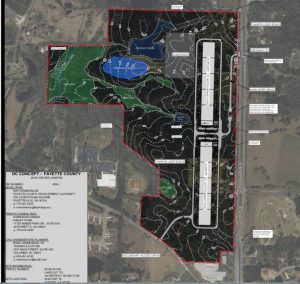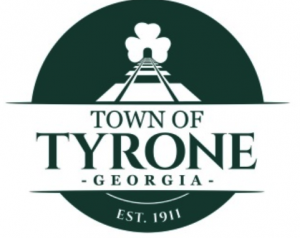Perhaps more than any governmental entity in Fayette County, Tyrone has the least to worry about when it comes to having a sufficient amount of money in the bank to weather the continuing recession. With 13 months of operating capital on hand, the Tyrone Town Council at its Feb. 25 retreat gave the go-ahead to develop a policy governing general fund reserves.
Finance/Human Resources Manager Penny Hunter in her report noted that the town currently has 13 months of operating reserves. That figure is based on a general fund budget totaling approximately $3.5 million, with one month’s operating capital totaling approximately $292,000. That said, Hunter reported that the anticipated 8 percent decrease in the tax digest later this year would amount to a decrease of approximately $79,000 in property tax collections later this year. Hunter added that revenues from motor vehicle tags and the local option sales tax are slowly increasing.
The main thrust of her report was to ask the council to consider a reserve policy for the general fund budget that would dictate the number of months of operating capital that would be required to be kept in reserve. The amount should be at least three months as specified by acceptable fiscal principles, Hunter said, adding that it could be placed at whatever number of months the council considered appropriate. Hunter said that, from a conservative standpoint, 12 months of reserves should be the most that would be needed.
Hunter advised that such a policy would set the number of months of operating reserve funds and define emergency uses that could be used with those funds. The policy would also require that the council would have to maintain the reserve amount. Town attorney Dennis Davenport in commenting on the eventual policy said the council could also vote at a later date to raise or lower the reserve amount.
The council agreed that Hunter should draft a policy and present it at the April 5 meeting.
Another item at the retreat centered on the idea of removing the human resources function from the finance manager’s duties. Interim Town Manager Brandon Perkins said separating out the duties to two people would be ideal. But considering the cost associated with another manager and Hunter’s qualifications to perform both jobs it would be better at this point to have her continue to perform both job functions, Perkins advised. To split the job functions out and hire a human resources manager would cost $40,000-60,000, Perkins added.
After some discussion the council reached a consensus to have Hunter continue to fill both positions.
Also at the retreat, the council had an initial discussion on the potential of having an outside agency collect various business taxes that may escape detection by town staff. Those include tax categories such as alcohol excise fees and business license fees. Hunter will gather additional information for a future presentation on the matter.
Other issues receiving various levels of discussion included items such as signage for the town limits, downtown, recreation building and library, the idea of adding a pavilion at Handley Park and extending the parking lot at Handley Park.
The retreat also served as a primer for new council members and included a wide range of topics such as discussions on parliamentary procedures, open meetings and open records procedures, purchasing vehicles, audit services and the contracting process.












Leave a Comment
You must be logged in to post a comment.